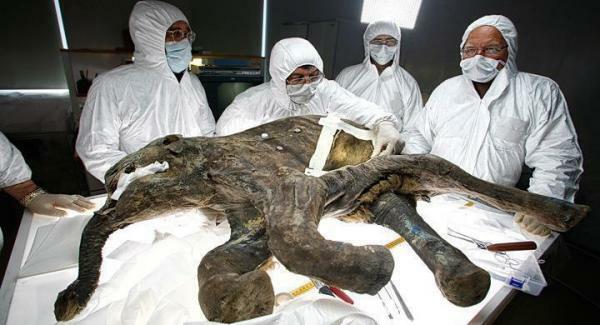Lyuba, the baby mammoth of the Ice Age

Lyuba, Russian name of a woman that means love, has been chosen to baptize this baby mammoth more than 42,000 years after his birth. Its discovery has been a colossal discovery for science, since the little baby has been preserved intact under the Siberian ice during all this time, to the amazement of the world.
He owes such a beautiful name to her discoverers, a deer herder and his son from the Russian Yamal peninsula, who found her buried by mud and mummified by ice. It was they who wanted to call her that, in honor of the wife and mother: Lyuba.
Its body is visibly crushed by the weight of the ice blocks, but it is so well preserved that scientists do not cease to marvel at this specimen, the most complete and best preserved never found.
Thanks to a luck of natural cryogenicsl, this fascinating creature that is 85 cm tall and 130 cm long retains its internal organs, although its tail is missing, probably torn off by other animals after its death.
In addition, the presence of mud on her trunk suggests that she could have drowned while drinking water or some kind of mud. Be that as it may, the truth is that Lyuba is a true time machine that transports us back thousands of years just by looking at her. Or, better, admiring her.

Mammoths first appeared in the Pliocene, about five million years ago. A change in climatic conditions left them without a source of food and, together with hunting, led to their extinction about 5,000 years ago.
If you want to read more articles similar to Lyuba, the baby mammoth of the Ice Age, we recommend that you enter our category of biology.

